NOTICE: This post references card features that have changed, expired, or are not currently available
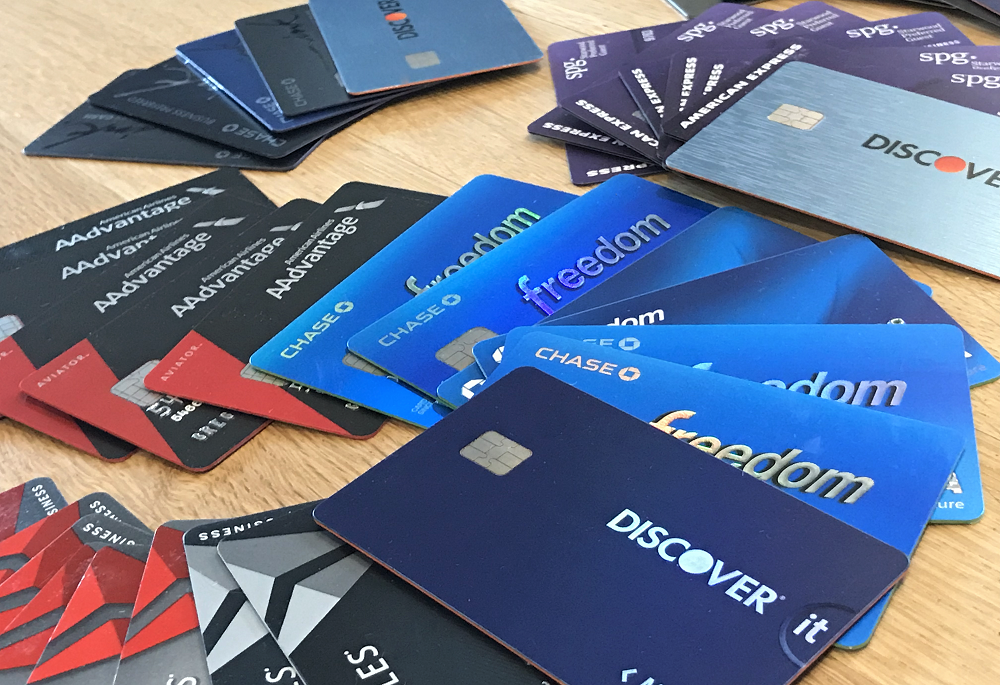
I’ve previously written a few posts with recommendations for teenagers and students who are interested in getting into the credit cards rewards game:
- Building (and viewing) teenage credit
- Planning a teen’s first credit card
- My teen’s first credit card, and his next steps towards rewards
- Chase Business Ink as a student starter card
I can boil down the advice from those posts to a few bullet points:
- Preparation (before age 18): Parents who are responsible with their credit can add the teen as an authorized user to a few of cards in order to help build credit. See: Building (and viewing) teenage credit.
- First card: I recommend the Discover It for Students Card. Worst case, if not approved for credit, the student will be offered a fee-free secured card (which will help build credit).
- Wait 6 months: The student should wait about 6 months before signing up for more cards in order to build a credit history with their Discover card.
- Do business: If the student can qualify for business cards, make sure to go for those since they won’t have any negative impact on the ability to sign up for additional consumer cards in the future, nor will they impact the student’s credit score (except for the very small temporary hit caused by a hard inquiry). See “Chase Business Ink as a student starter card” for more on this topic.
My son is currently a junior in college (I know!!! I can’t believe it either!) and I’m feeling like we haven’t done enough to take advantage of his points earning power. We need a plan for going forward. Quite a few readers have asked for the same. A typical email says “OK, my child signed up for the Discover It for Students card like you suggested. Now what?” In this post, I’ll attempt to answer that question…
My son’s credit card experience to-date
Here’s a record of the cards that my son has signed up for so far:
- Approved Nov 2017: Discover It for Students
- Denied March 2018: Chase IHG Rewards Club Select (no longer available to new applicants)
He may have been approved if he called the reconsideration line, but he didn’t
- Approved August 2018: Amex SPG Business Card (now Bonvoy Business)
- Approved August 2018: Amex SPG Luxury Card (now Bonvoy Brilliant)
There was a brief window of opportunity to sign up for both SPG cards, so we jumped on it. Both cards were recently cancelled. - Approved December 2018: Amex Business Platinum Card
He will cancel this one when the annual fee comes due in January - Denied March 2019: Ebates Visa (now Rakuten Visa)
- Approved April 2019: Chase Ink Business Unlimited
What we can infer from this information:
- If the IHG card rejection is any indication, 3 months isn’t long enough to wait after opening the Discover card. That’s why I now recommend waiting 6 months. Of course, it’s only one little data point and he might even have been approved if he had called for reconsideration.
- Amex cards are easy to get. If minimum spend requirements can be met (maybe a parent can help?), these are low hanging fruit. Unfortunately most have high annual fees that are not waived the first year.
- The Rakuten Visa is tough for almost everyone to get. There’s a known work-around that involves freezing freezing Sagestream and ARS credit reporting (details here).
- Chase business cards are fair game, especially the fee-free ones (which can be approved with lower limits).
| Applying for Business Credit Cards Yes, you have a business: In order to sign up for a business credit card, you must have a business. That said, it's common for people to have businesses without realizing it. If you sell items at a yard sale, or on eBay, for example, then you have a business. Similar examples include: consulting, writing (e.g. blog authorship, planning your first novel, etc.), handyman services, owning rental property, renting on airbnb, driving for Uber or Lyft, etc. In any of these cases, your business is considered a Sole Proprietorship unless you form a corporation of some sort. When you apply for a business credit card as a sole proprietor, you can use your own name as your business name, use your own address and phone as the business' address and phone, and your social security number as the business' Tax ID / EIN. Alternatively, you can get a proper Tax ID / EIN from the IRS for free, in about a minute, through this website. Is it OK to use business cards for personal expenses? Anecdotally, almost everyone I know uses business cards for personal expenses. That said, the terms in most business card applications state that you should use the card only for business use. Also, some consumer credit card protections do not apply to business cards. My advice: don't use the card for personal expenses if you're not comfortable doing so. |
Plan overview
The easiest and quickest way to amass points and miles is through credit card signup bonuses. Contrary to conventional wisdom, this won’t hurt your credit score long term as long as you pay your credit card bills in full each month and avoid charging near your limit (e.g. it’s better to keep your credit utilization low relative to the amount of credit you have available). In fact, many people see their credit score increase a few months after starting to sign up for multiple cards. The general process for earning points this way is described in our Start Here page.
Signup Rhythm
In the plan described below, I recommend that the student sign up for 1 consumer card every 6 months, plus up to two business cards per year by signing up 3 months after each consumer card. The overall flow looks like this:
High school senior: Sign up for Discover It Miles card
Each year of college:
- October: Sign up for consumer card
- January: Sign up for business card (optional)
- April: Sign up for consumer card
- July: Sign up for business card (optional)
The months shown above are just examples. Space out the applications with 90+ days between them. Of course it is fine to go slower if this signup pace is too aggressive for you.
Cancel or downgrade
For those cards with annual fees, the student should cancel or downgrade to a no-fee card once the second year annual fee comes due. I especially recommend downgrading since it’s a good idea to keep your first few cards open forever. In the long run this will help the average age of your credit which is a component of your credit score.
Assumptions
This plan makes the following assumptions:
- The student is beginning with a relatively good credit score. For background, see: Building (and viewing) teenage credit.
- The student has a way to meet minimum spend requirements. Perhaps a parent will help?
- The student will be responsible with their credit. Specifically, they will pay their credit card bill in-full each and every month.
The last point is particularly important. Late fees and interest payments can quickly cost the student more than the rewards are worth if they don’t pay in full and on time every month. In my son’s case, I helped set up his Discover account to automatically pay the full balance each month from his checking account.
Preparation
Before signing up for any new cards, I recommend signing up for Travel Freely. This is a free web-based tool that walks you through the process of signing up for cards to earn big bonuses. The tool keeps track of your cards including your 5/24 status, alerts you when time is running out to complete minimum spend, alerts you when annual fees are nearly due, and much more. I consider it essential for anyone starting out.
Here’s the link to sign up (for free) with Travel Freely. Full disclosure: Frequent Miler and Travel Freely have a business relationship, but only because I believe that this tool is truly useful for anyone into signing up for cards for their bonuses. I use it to manage my signups and those of several family members as well (including my son, of course). You can read more of my thoughts about Travel Freely here: Take the stress out of credit card bonus hunting: Travel Freely.
Card recommendations
The following recommendations are based on current signup bonuses. I’ve heavily favored cards with no annual fees or with the first year free under the assumption that students have less money available for ongoing credit card fees. If you’re willing to incur first year annual fees, it’s possible to earn far more rewards.
Bonus details change regularly so consider this only a template that can and should be altered according to your needs.
18th Birthday
- Go for your first card:
Card Offer 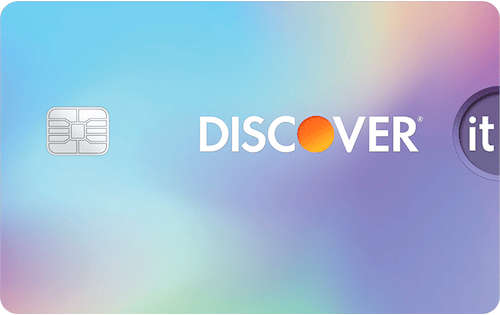 ⓘ $120 1st Yr Value EstimateClick to learn about first year value estimates$100 + $20/year ⓘFriend-ReferralThis is a friend-referral offer. A member of the Frequent Miler community may earn a referral bonus if you are approved for this offerGet $100 after first purchase. All cashback earned in first 12 months will be doubled including 5% earned in rotating categories. Plus, get $20 cash back each school year your GPA is 3.0 or higher for up to the next 5 years.No Annual FeeInformation about this card has been collected independently by Frequent Miler. The issuer did not provide the details, nor is it responsible for their accuracy.FM Mini Review: In my opinion this is the single best "starter card" for students. It offers great rewards and no annual fee.
ⓘ $120 1st Yr Value EstimateClick to learn about first year value estimates$100 + $20/year ⓘFriend-ReferralThis is a friend-referral offer. A member of the Frequent Miler community may earn a referral bonus if you are approved for this offerGet $100 after first purchase. All cashback earned in first 12 months will be doubled including 5% earned in rotating categories. Plus, get $20 cash back each school year your GPA is 3.0 or higher for up to the next 5 years.No Annual FeeInformation about this card has been collected independently by Frequent Miler. The issuer did not provide the details, nor is it responsible for their accuracy.FM Mini Review: In my opinion this is the single best "starter card" for students. It offers great rewards and no annual fee.
Wait at least 6 months before the next steps (and adjust the dates accordingly):
Freshman Year
- October-ish Consumer Card:
Card Offer  ⓘ $0 1st Yr Value EstimateClick to learn about first year value estimatesNone Non-AffiliateThis card is no longer availableNo Annual FeeInformation about this card has been collected independently by Frequent Miler. The issuer did not provide the details, nor is it responsible for their accuracy.FM Mini Review: Great for 5X categories. Good companion card to Sapphire Reserve, Sapphire Preferred, or Ink Business Preferred.
ⓘ $0 1st Yr Value EstimateClick to learn about first year value estimatesNone Non-AffiliateThis card is no longer availableNo Annual FeeInformation about this card has been collected independently by Frequent Miler. The issuer did not provide the details, nor is it responsible for their accuracy.FM Mini Review: Great for 5X categories. Good companion card to Sapphire Reserve, Sapphire Preferred, or Ink Business Preferred. - January-ish Business Card:
Card Offer 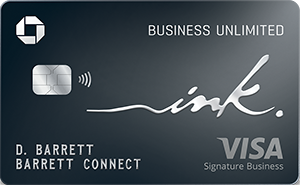 ⓘ $1074 1st Yr Value EstimateClick to learn about first year value estimates$750 cash back* ⓘAffiliateThis is an affiliate offer. Frequent Miler may earn a commission if you are approved for this offer$750 (*awarded as 75,000 points) after $6k spend in the first 3 months.No Annual FeeRecent better offer: $900 (*awarded as 90,000 points) after $6k spend in the first 3 months. (Expired 11/13/25)FM Mini Review: Great welcome offer for a no annual fee card. Good option for earning 1.5X everywhere. Good companion card to Ink Business Preferred, Sapphire Reserve or Sapphire Preferred. Click here for our complete card review
ⓘ $1074 1st Yr Value EstimateClick to learn about first year value estimates$750 cash back* ⓘAffiliateThis is an affiliate offer. Frequent Miler may earn a commission if you are approved for this offer$750 (*awarded as 75,000 points) after $6k spend in the first 3 months.No Annual FeeRecent better offer: $900 (*awarded as 90,000 points) after $6k spend in the first 3 months. (Expired 11/13/25)FM Mini Review: Great welcome offer for a no annual fee card. Good option for earning 1.5X everywhere. Good companion card to Ink Business Preferred, Sapphire Reserve or Sapphire Preferred. Click here for our complete card review - April-ish Consumer Card:
Card Offer - July-ish Business Card:
Note: 60K offers for this card come and go over time. Try to time your application to coincide with a 60K offer.
Card Offer 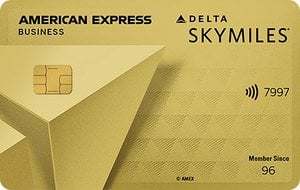 ⓘ $993 1st Yr Value Estimate$150 Delta Stays credit valued at $75
ⓘ $993 1st Yr Value Estimate$150 Delta Stays credit valued at $75
Click to learn about first year value estimates90K miles ⓘAffiliateThis is an affiliate offer. Frequent Miler may earn a commission if you are approved for this offerLimited Time Offer: Earn 90,000 bonus miles after spending $6,000 in eligible purchases on your new card in your first 6 months of card membership. Terms and limitations apply. (Rates & Fees)
(Offer Expires 4/1/2026)$0 introductory annual fee for the first year, then $150FM Mini Review: Priority boarding and first checked bag free make this a reasonably good option for Delta flyers who do not have elite status. However, those who can make use of an annual companion certificate would do better with the Delta Platinum card.
Sophomore Year
- October-ish Consumer Card:
Card Offer 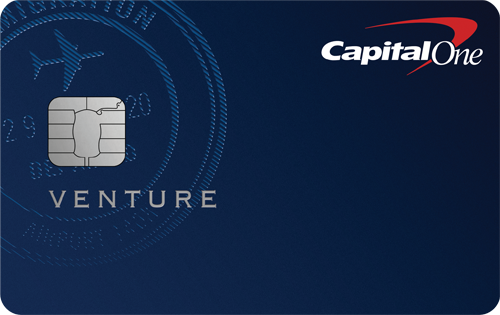 ⓘ $1205 1st Yr Value Estimate$250 travel credit valued at $220
ⓘ $1205 1st Yr Value Estimate$250 travel credit valued at $220
Click to learn about first year value estimates75K Miles + $250 Capital One Travel credit75k miles after $4k spend within first 3 months + $250 to use on Capital One Travel in your first cardholder year$95 Annual FeeAlternate Offer: Alternate offer for 75k miles + $300 travel credit available for some via referral pre-approvalInformation about this card has been collected independently by Frequent Miler. The issuer did not provide the details, nor is it responsible for their accuracy.Recent better offer: 75k miles after $4k spend within first 3 months + a one-time $250 Capital One Travel credit to use in your first cardholder yearFM Mini Review: This card earns 2 miles per dollar, which are worth exactly 1 cent each toward travel. This makes the return on spend similar to a 2% cash back card (though in this case you must redeem your miles to offset travel in order to get 1 cent per mile). One big advantage over cash back: Capital One allows transfering their miles to airline miles & hotel points. Click here for our complete card review - January-ish Business Card:
Card Offer - April-ish Consumer Card:
Card Offer 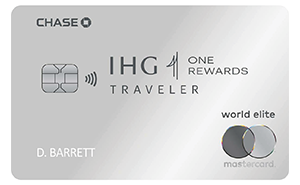 ⓘ $511 1st Yr Value EstimateClick to learn about first year value estimates90K points & +3 Spending Bonus ⓘAffiliateThis is an affiliate offer. Frequent Miler may earn a commission if you are approved for this offerLimited Time Offer: Earn 90,000 Bonus Points after spending $2,000 on purchases within the first 3 months from account opening and up to 30,000 more points by earning 3 additional points per dollar spent in the first 6 months from account opening on purchases that normally earn 2x and 3x
ⓘ $511 1st Yr Value EstimateClick to learn about first year value estimates90K points & +3 Spending Bonus ⓘAffiliateThis is an affiliate offer. Frequent Miler may earn a commission if you are approved for this offerLimited Time Offer: Earn 90,000 Bonus Points after spending $2,000 on purchases within the first 3 months from account opening and up to 30,000 more points by earning 3 additional points per dollar spent in the first 6 months from account opening on purchases that normally earn 2x and 3x
(Offer Expires 3/18/2026)No Annual FeeRecent better offer: 120K points after $2K spend in the first 3 months (Expired 7/24/25)FM Mini Review: A good no annual fee card for anyone who values the 4th night free benefit. - July-ish Business Card:
Card Offer 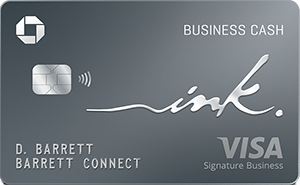 ⓘ $1029 1st Yr Value EstimateClick to learn about first year value estimates$750 cash back* ⓘAffiliateThis is an affiliate offer. Frequent Miler may earn a commission if you are approved for this offer$750(*awarded as 75,000 points) after $6k spend in the first 3 months.No Annual FeeRecent better offer: $900 (*awarded as 90,000 points) after $6k spend in the first 3 months. (Expired 11/13/25)FM Mini Review: This one should be in everyone's wallet. Incredible welcome offer for a no-annual-fee card. Great card for 5X categories. Excellent companion card to Sapphire Reserve, Sapphire Preferred, or Ink Business Preferred. Click here for our complete card review
ⓘ $1029 1st Yr Value EstimateClick to learn about first year value estimates$750 cash back* ⓘAffiliateThis is an affiliate offer. Frequent Miler may earn a commission if you are approved for this offer$750(*awarded as 75,000 points) after $6k spend in the first 3 months.No Annual FeeRecent better offer: $900 (*awarded as 90,000 points) after $6k spend in the first 3 months. (Expired 11/13/25)FM Mini Review: This one should be in everyone's wallet. Incredible welcome offer for a no-annual-fee card. Great card for 5X categories. Excellent companion card to Sapphire Reserve, Sapphire Preferred, or Ink Business Preferred. Click here for our complete card review
Junior Year
- October-ish Consumer Card:
Card Offer 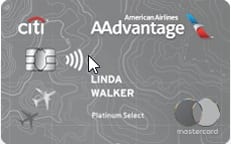 ⓘ $1103 1st Yr Value EstimateClick to learn about first year value estimates80K Miles Non-AffiliateThis is NOT an affiliate offer. We always present the best offer even when it means less revenue for Frequent Miler80K miles after $1K spend in first 3 months. Ask flight attendant for a code or enter 000000$0 introductory annual fee for the first year, then $99Information about this card has been collected independently by Frequent Miler. The issuer did not provide the details, nor is it responsible for their accuracy.Recent better offer: This is the best we've seen in recent timesFM Mini Review: Excellent choice for a great intro bonus. Plus it offers the usual collection of perks for flying AA (free checked bag, priority boarding, etc.)
ⓘ $1103 1st Yr Value EstimateClick to learn about first year value estimates80K Miles Non-AffiliateThis is NOT an affiliate offer. We always present the best offer even when it means less revenue for Frequent Miler80K miles after $1K spend in first 3 months. Ask flight attendant for a code or enter 000000$0 introductory annual fee for the first year, then $99Information about this card has been collected independently by Frequent Miler. The issuer did not provide the details, nor is it responsible for their accuracy.Recent better offer: This is the best we've seen in recent timesFM Mini Review: Excellent choice for a great intro bonus. Plus it offers the usual collection of perks for flying AA (free checked bag, priority boarding, etc.) - January-ish Business Card:
Card Offer - April-ish Consumer Card:
Card Offer ⓘ $291 1st Yr Value EstimateClick to learn about first year value estimates80K Points ⓘAffiliateThis is an affiliate offer. Frequent Miler may earn a commission if you are approved for this offer80K points after $2K spend within the first 6 months of card membership. Terms apply. Rates & Fees No Annual FeeRecent better offer: 100K points after $2K spend in first 6 months (Expired 1/14/26)FM Mini Review: This card isn't particularly rewarding, but it's good to keep primarily for targeted Amex upgrade offers to the Surpass card. - July-ish Business Card:
Card Offer 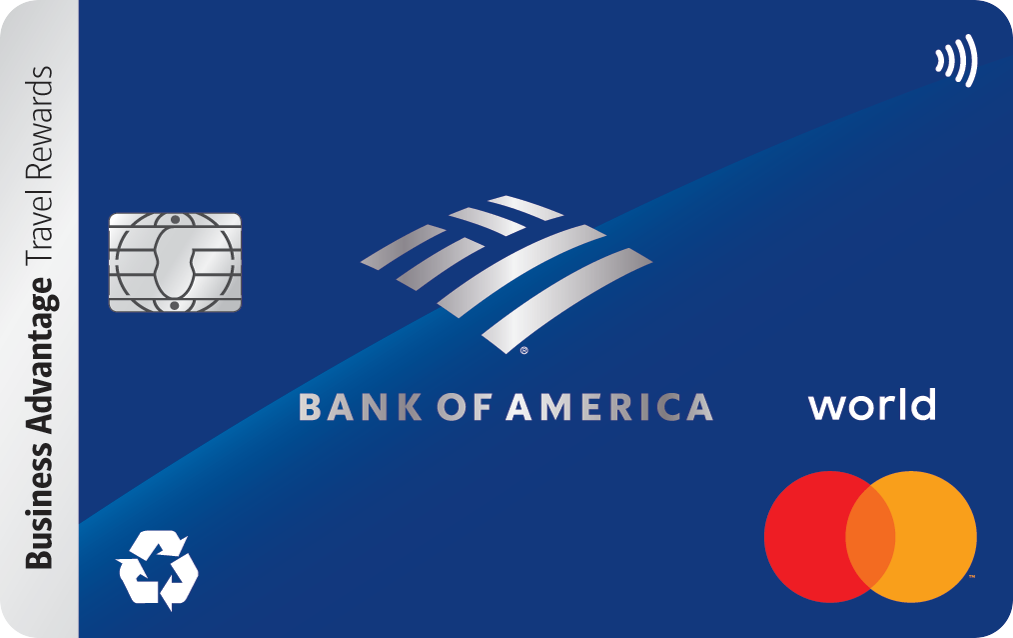 ⓘ $252 1st Yr Value EstimateClick to learn about first year value estimates30K points30K after $3K spend in the first 90 daysNo Annual FeeInformation about this card has been collected independently by Frequent Miler. The issuer did not provide the details, nor is it responsible for their accuracy.
ⓘ $252 1st Yr Value EstimateClick to learn about first year value estimates30K points30K after $3K spend in the first 90 daysNo Annual FeeInformation about this card has been collected independently by Frequent Miler. The issuer did not provide the details, nor is it responsible for their accuracy.
Senior Year
- October-ish Consumer Card:
Card Offer 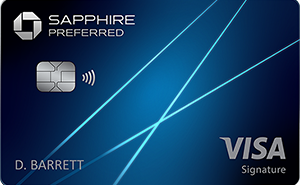 ⓘ $985 1st Yr Value Estimate$50 prepaid hotel credit valued at $35
ⓘ $985 1st Yr Value Estimate$50 prepaid hotel credit valued at $35
Click to learn about first year value estimates75K Points ⓘAffiliateThis is an affiliate offer. Frequent Miler may earn a commission if you are approved for this offerEarn 75,000 bonus points after spending $5,000 within the first three months from account opening.$95 Annual FeeRecent better offer: Expired 5/14/25: 100K after $5K spendFM Mini Review: Great welcome offer. Unlocks ability to transfer points to hotel & airline partners. Solid option to pair with no annual fee Ultimate Rewards cards such as the Freedom cards, Ink Business Cash, and Ink Business Unlimited. - January-ish Business Card:
Card Offer 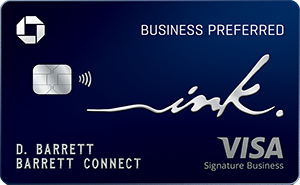 ⓘ $1277 1st Yr Value EstimateClick to learn about first year value estimates100K points ⓘAffiliateThis is an affiliate offer. Frequent Miler may earn a commission if you are approved for this offer100K after $8K spend in the first 3 months$95 Annual FeeRecent better offer: 120K after $8K spend (expired 9/4/24)FM Mini Review: Great card for welcome offer and 3X categories. Also consider the Ink Business Cash for its 5X categories, and the Ink Business Unlimited to earn 1.5X everywhere.
ⓘ $1277 1st Yr Value EstimateClick to learn about first year value estimates100K points ⓘAffiliateThis is an affiliate offer. Frequent Miler may earn a commission if you are approved for this offer100K after $8K spend in the first 3 months$95 Annual FeeRecent better offer: 120K after $8K spend (expired 9/4/24)FM Mini Review: Great card for welcome offer and 3X categories. Also consider the Ink Business Cash for its 5X categories, and the Ink Business Unlimited to earn 1.5X everywhere. - April-ish Consumer Card:
Card Offer 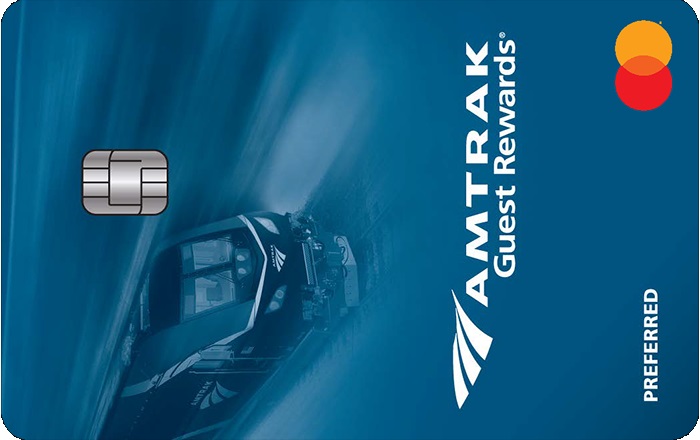 ⓘ $408 1st Yr Value EstimateClick to learn about first year value estimates20K points Non-AffiliateThis is NOT an affiliate offer. We always present the best offer even when it means less revenue for Frequent Miler20K points after $1K spend in the first 3 billing cycles $99 Annual FeeInformation about this card has been collected independently by Frequent Miler. The issuer did not provide the details, nor is it responsible for their accuracy.Recent better offer: 30K points after $1K spend in the first 3 billing cycles + 2 companion certificates, 2 upgrade certificates and 2 lounge passes, or 40K points after $2K spend in the first 3 billing cycles
ⓘ $408 1st Yr Value EstimateClick to learn about first year value estimates20K points Non-AffiliateThis is NOT an affiliate offer. We always present the best offer even when it means less revenue for Frequent Miler20K points after $1K spend in the first 3 billing cycles $99 Annual FeeInformation about this card has been collected independently by Frequent Miler. The issuer did not provide the details, nor is it responsible for their accuracy.Recent better offer: 30K points after $1K spend in the first 3 billing cycles + 2 companion certificates, 2 upgrade certificates and 2 lounge passes, or 40K points after $2K spend in the first 3 billing cycles - July-ish Business Card:
Card Offer  ⓘ $-95 1st Yr Value EstimateClick to learn about first year value estimatesNone Non-AffiliateThis card is no longer available to new applicants$95 Annual FeeInformation about this card has been collected independently by Frequent Miler. The issuer did not provide the details, nor is it responsible for their accuracy.Recent better offer: Expired 2/6/23: 80K miles + a $95 statement credit after $2K spend in first 90 days.
ⓘ $-95 1st Yr Value EstimateClick to learn about first year value estimatesNone Non-AffiliateThis card is no longer available to new applicants$95 Annual FeeInformation about this card has been collected independently by Frequent Miler. The issuer did not provide the details, nor is it responsible for their accuracy.Recent better offer: Expired 2/6/23: 80K miles + a $95 statement credit after $2K spend in first 90 days.
Add it all up
Assuming success at getting approved for all of the above cards and in meeting the spend requirements, and assuming that the signup bonuses stay roughly the same, the student should earn the following numbers of signup bonus points (not counting points additionally earned from spend):
- Chase Freedom: 20K
- Chase Ink Business Unlimited: 50K
- Wells Fargo Propel: 30K
- Amex Delta Gold: 60K [Note: 60K offer isn’t available at the time of this writing, but it is likely to return]
- Capital One Venture Rewards: 50K
- US Bank Cash Rewards: 50K ($500)
- IHG Traveler: 60K
- Chase Ink Business Cash: 50K
- Citi AA Platinum: 50K
- Chase United Explorer Business: 50K (assuming the student doesn’t spend $25K for the full 100K offer)
- Hilton Honors: 75K
- Bank of America Business Travel Rewards: 25K
- Chase Sapphire Preferred: 60K
- Chase Ink Business Preferred: 80K
- Bank of America Amtrak World: 40K (+ $100 statement credit to more than offset the first year annual fee)
- AA Aviator Business: 75K
In total, we’re looking at 825,000 points in four years. It’s actually possible to do far better than this, but I think that this plan offers a solid start with very low first year annual fees.
Note that while I avoided most of the crazy big spend requirements, I didn’t try too hard to minimize them. The assumption is that a parent will help or that the student learns how to increase spend and get most of it back. For those who want to earn rewards but are not willing or able to put big spend on their new cards, you can find great options in this post: Best offers for low spenders.



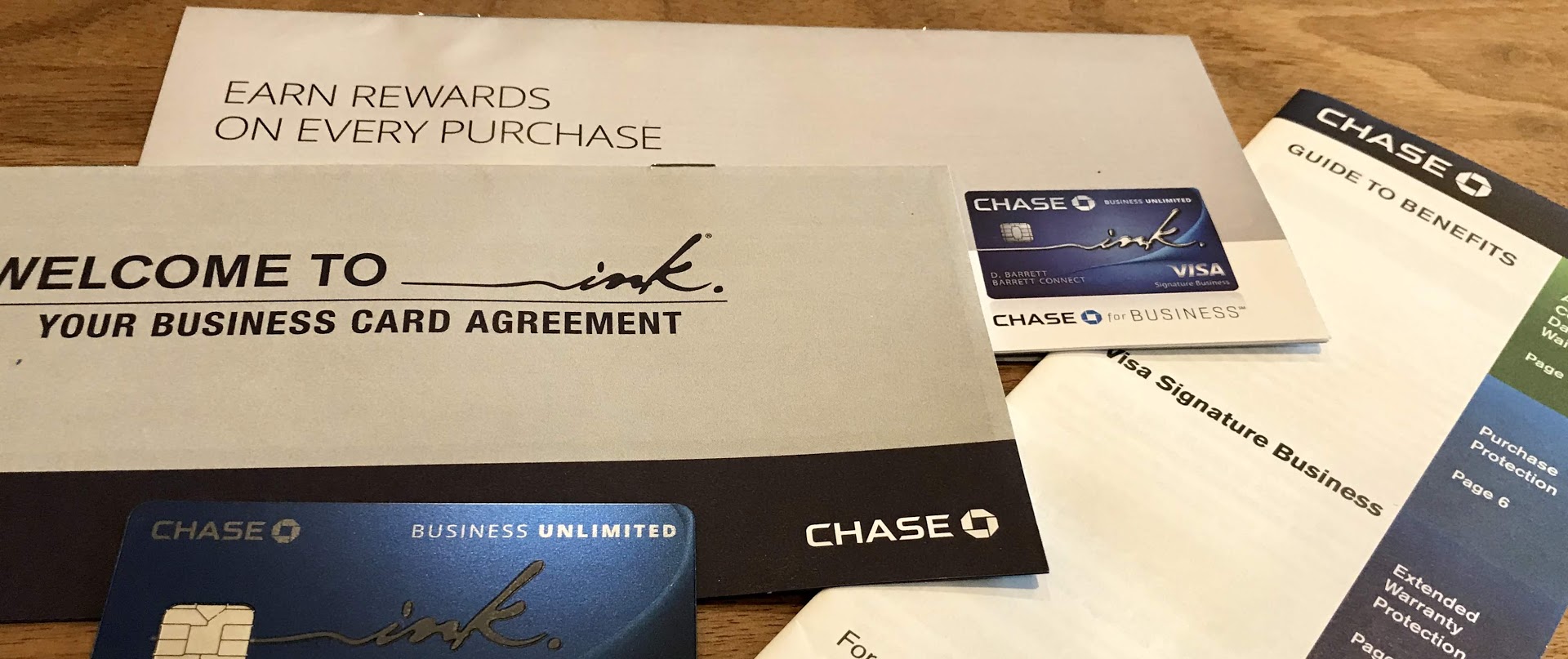
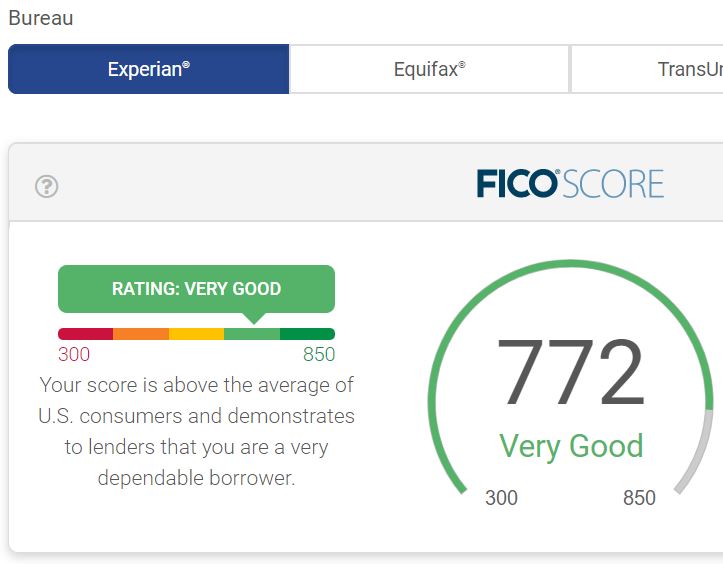

For the teenagers’ first card application at age 18, how to deal with the application without his/her personal income?
In my son’s case, we estimated how much he might earn over the course of the coming year, including any part time and/or summer employment
Hi Greg: I’m curious if you have an opinion of the Bank of America Travel Rewards Credit Card for Students (which offers $250 in travel rewards) vs. Discover IT as the starter card (I would help my son meet the minimum spend)?
I think that would be a fine way to go, but I don’t have any firsthand knowledge of how easy the card is to get for a student.
[…] A student credit card plan: 825,000 points by graduation […]
How can a student get approved for a card with no or limited income? Does you son work? Thanks Paul
Students often work part time jobs and/or full time during the summer. My son mostly just works throughout the summer.
Thanks Greg! Do you have any idea what the minimum income requirements are to get the cards you suggested?
Another thing. The student may need a job that will give them a paycheck. My daughter did a lot of babysitting and made some pretty good money, but discover and everywhere else we called wouldn’t count it as income. We couldn’t even get her a secured card. Once she got a job with a paycheck she was approved right away for the discover student card.
I’ve been “stuck” thinking about what card to advise my son (19) to apply for and this is a pretty good game plan for moving forward. Lots to digest.
Thanks for creating this post.
A word of caution, some of these cards have credit history requirements that would put them out of the reach of most college undergrads. Particularly business cards. The Citibusiness card requires a 5 year credit history. BoA and Barclay’s biz cards also have a credit history requirement, at least greater than about 3 years for both. When asking around, the figure that’s usually agreed on for those 2 banks biz cards is a 5 year credit history requirement.
The Citibusiness credit history requirement is well documented in points and miles circles. I’m giving the BoA and Barclay’s figures from personal experience (family member denials). US Bank seems to have similar requirements for their biz cards.
Amex and Chase biz cards, thankfully, are much less strict in this regard.
Thanks! This is very helpful. I’ll update the list with these requirements in mind. If credit history began at 13 (with AU cards, for example), they should be OK right?
From what I’ve seen, a non Amex/Chase biz card is likely going to have a difficult time passing manual underwriting (especially reconsideration) if the applicant’s only card with a lengthy credit history is an AU card.
That being said, I have seen a few positive DPs with the citibusiness card, but those are rare. The other banks mentioned I think would be even tougher (I’m having flashbacks of nightmare recon calls with Barclay’s and BoA). Biz recon MO for most banks is to go over your record (and business! ) with a fine toothed comb.
The recommended card to get an AU for is Chase due to their backdating.
So to answer your question, Ok?, I don’t know, but at least they’ll have a shot.
Why don’t u folks pick the right card then CALL the bank before and tell them what ur doing .
Bankers like kids too some were kids themselves but not all.
CHEERs
If they do well with credit and have a high score that will help them get a top job .On the other hand a low score they won’t get that job so keep a close eye on what their doing . Award points are a Game u can’t increase ur wealth with them just enjoy life more which is nice .
CHEERs
Greg, timely post. Daughters 18th bday is Monday…….
Thanks
Good call on the 6+ month wait for new applications after Discover, that was my experience as well.
Correct me if I’m wrong, but you seem to say to start with Discover in the start, but then you say go with freedom as the first card?
Also IME, chase won’t approve for any of the branded cards until you’ve got a year’s worth of credit history (I was declined for the old IHG card w 7mo history just before it went away, and recon said 1yr+ history).
Another thing that may or may not come into play with this plan, is the ability to get approved on the grounds of minimum credit line needed to get approved.
For example, Visa signature cards have $5k min, while MasterCards’ minimum is $2k at most (for world elite). You seem to suggest MasterCards early on, so that’s definitely good.
Thank you for this comment. The plan that was laid out was intended to be the plan to use 6 months after signing up for the Discover card. I didn’t realize that it was unclear until reading your comment. I’ve updated the post to make it very clear (hopefully)
Interesting about Chase not approving branded cards for a year. Hopefully we’ll hear more data points about this to see if it holds broadly.
People often say to me that Visa signature cards require $5K minimum, but my son was approved for the Ink Business Unlimited Visa Signature with only $3K credit line. I don’t know whether the rules are different on the business side, but my guess is that it is really the card issuer that decides the minimum and that Chase has a lower minimum for their no-fee cards than their premium cards. It’s just my guess at this point though. Anyway, that’s why I suggested the Ink Cash and Ink Business Unlimited earlier on and the Business Preferred later. My hope is that as credit worthiness is proven, the student can later get approved for a higher limit. That is an untested theory though.
I’ve found the minimum credit line to always be disclosed on that long T&C page, where the APR stuff is and all that. Might be a different rule for Biz cards, but it’s definitely $5k for personal Signatures. $10k for Visa Infinity cards, too.
Good to know! I can’t believe I’ve never noticed that before. You’re right, the Sapphire Preferred lists “at least $5,000” whereas the Ink Business Unlimited lists “at least $3,000”
What I’m seeing with a number of no-fee Chase consumer cards is language like this: “If approved for a Signature account, your credit access line will be at least $5000. If approved for a Platinum account, your credit limit will be at least $2000.” Examples include Chase Freedom and Marriott Bonvoy Bold